每日观察:关注Facebook新项目Project Spartan(6.17)
1)社交游戏开发商CrowdStar日前宣布进军手机游戏领域,推出iPhone游戏《Top Girl》。
该游戏是CrowdStar新手机游戏工作室的开山之作,假如能够获得成功,它就意味着CrowdStar可以在智能手机及平板电脑游戏市场立足。CrowdStar过去曾是仅次于Zynga的Facebook第二大社交游戏开发商,但目前的地位已跌至第8名,每月活跃用户为2400万。
《Top Girl》主要锁定年龄18至35岁,并且喜欢时尚的女性用户,支持玩家在游戏中体验模特的职业生涯和娱乐活动。iPhone和iPad用户可免费下载该游戏,并付费购买虚拟商品增加游戏体验,同时也可以使用Facebook Connect社交功能,或通过OpenFeint与其他玩家互动。该游戏不久后还可能推出Android版本。
2)据games.com报道,Zynga日前向玩家推出了一项新游戏创意调查,让玩家为数个游戏创意评分,以考察它们的受欢迎程度。这些游戏题材包括好莱演艺、制片、歌星、侠盗罗宾汉、航海等,但games博客认为以海盗为主题的寻宝社交游戏最令人感兴趣。
3)Zynga起诉巴西社交游戏公司Vostu(游戏邦注:该公司总部位于圣保罗,在阿根庭布宜诺斯艾利斯和纽约均设有办事处),称后者的多款游戏“公然”侵犯其版权,不但剽窃了Zynga游戏的创意,甚至游戏机制、虚拟道具、故事主线都与Zynga游戏如出一辙。Zynga总顾问Reggie Davis指出,从Zynga游戏中获得灵感与完全照搬Zynga产品特色、产品策略、品牌策略等做法,是两种不同的范畴,Vostu复制Zynga原创作品已属于一种违法行为。
Zynga还指出,Vostu的运营模式很简单,那就是拷贝Zynga的成功游戏,这一行径甚至使它成了“巴西的Zynga”。Vostu甚至还“不加取舍”地照搬了Zynga游戏中的失误,例如在《CityVille》中,Zynga开发者忘记将社区建筑与道路相连通,游戏发布之时也没有修复这一漏洞,而Vostu克隆《CtiyVille》的游戏《MegaCity》也完整复制了这一失误(游戏邦注:《MegaCity》的Facebook页面显示,其每月活跃用户约30.7万)。
Vostu则于日前回应表示,Zynga自身就难以摆脱窃取他人创意的嫌疑,Vostu有500名成员日以继夜地辛勤劳动,这些游戏是他们为公司的3500万玩家独立开发的原创作品。
需要指出的是,Zynga本身在成立之初曾不断遭遇“剽窃”其他公司游戏创意的起诉,并在2009年因《Mafia Wars》商标权风波与Digital Chocolate引起纠纷,上个月还因“俄勒冈小道”(Oregon Trail)名称而引起The Learning Company的不快(游戏邦注:Zynga游戏《FrontierVille》的扩展游戏内容“Oregon Trail”现已更名为“Pioneer Trail”)。
4)社交游戏服务公司BringIt宣称将Facebook Credits添加至其服务范围(游戏邦注:BrightIt主要项目是为其他公司的社交游戏植入迷你小游戏,让玩家通过体验这些小游戏而赢取社交游戏的虚拟货币奖励),支持用户赢取Facebook Credits。
该公司将利用货币“余额”这一策略,根据玩家已支付实际道具费用所剩下的Facebook Credits余额,将其引向另一款可消费这些余额的游戏内容。这种策略类似于传统街机游戏,如果玩家在某款游戏中花掉25美分,那么就可以利用剩下的75美分体验其他游戏。
BringIt首次在RockYou的《Zoo World》中植入这种迷你小游戏时就发现,约6.5%的用户会尝试体验这类游戏。在这类用户中,又有55%会重访小游戏,他们在小游戏中逗留的时长也增长至6分钟30秒左右。该公司表示他们还将为这项服务添加日常奖励、礼物机制、锦标赛和积分排行榜等功能。
5)《HotShot》是一款由PlayQ开发并于5月初发布的Facebook游戏,据AppData数据显示,该游戏目前的MAU是61万6496,DAU是13万6445。这是一款弹珠盘风格的街机游戏,视觉效果类似于PopCap休闲游戏《Peggle》(游戏邦注:《Peggle》尚未推出Facebook版本),其社交特点主要体现在玩家之间相互比较自己搜集的徽章和得分。玩家可使用Facebook Credits购买虚拟货币Gold,从而兑换能量以延长游戏时间。
6)Facebook宣布将与英国的SupersonicAds和德国的Deal United两家市场营销服务公司合作,支持欧洲用户通过订阅杂志、租借在线电影内容等服务,赢取Facebook Credits虚拟货币。
目前已有一些游戏开发商通过与SupersonicAds和Deal United等服务供应商的合作,支持用户通过完成相应任务而赢取游戏虚拟货币。
7)据TechCrunch报道,有消息称Facebook正打造一个名为Project Spartan的新项目,它是一个完全基于HTML5,可在iPhone和iPad设备的Safari浏览器上运行的平台,而并非需经过苹果App Store审核的原生应用。
有观察者指出,Facebook此举的意图非常明显,那就是利用苹果设备打破其应用销售规则的束缚,让Project Spartan成为取代App Store(或其他销售中枢)的游戏及其他应用的发布渠道。据称包括Zynga、《赫芬顿邮报》等80家左右的公司已参与这一项目,准备在未来数周内针对该平台发布内容。(本文为游戏邦/gamerboom.com编译,如需转载请联系:游戏邦)
1)Already a big player in Facebook games, social game maker CrowdStar is expanding into mobile today with the launch of an iPhone game called Top Girl.
The title is the first one built by CrowdStar’s new mobile game studio, headed by Blair Hamilton. It is also the first one fueled by the company recent $23 million infusion of venture money. As such, the game is a big strategic move by CrowdStar, which was once ranked second only to Zynga on Facebook but is now No. 8 with 24 million monthly active users. If it succeeds, CrowdStar can grab an important foothold in smartphone and tablet games, which are some of the fastest-growing segments in gaming.
The title is aimed at the same female demographic that CrowdStar attracts with its most successful Facebook game, It Girl. But Top Girl is focused on a unique mobile experience, Hamilton said. And it targets the under-served market of young women who enjoy playing social mobile role-playing games.
The game is a free-to-play native iPhone title. Users can download it for free on the iPhone or iPad and then pay real money for virtual goods in the game. The title is not connected to It Girl and so is a new brand that targets women who want to play out a fantasy modeling career. It does not use Facebook Connect for social connectivity. Rather, it uses the social mobile network of CrowdStar’s one-time sister company, OpenFeint, which was recently acquired by Gree.
CrowdStar recently raised a round of funding from Intel Capital and Time Warner. Top Girl is live in the Apple App Store today. CrowdStar has launched mobile games before in the mobile market. Those games, based on its Happy Aquarium title, were for feature phones and have pretty much run their course. CrowdStar will likely do an Android version of the new game as well.(source:venturebeat)
2)How about a Zynga Pirates game? Zynga survey teases game ideas
by Joe Osborne
Or, better yet, what do you think of a Robin Hood social game by Zynga? Those are some of the possibilities for future Facebook or mobile games that Zynga teased in one of its infamous surveys. It appears that the company is toying around with several potential game ideas in house, and wants you to help decide what becomes the next big thing since, well, Empires & Allies, really.
The game ideas span Hollywood acting and production to acting as a music mogul. But our favorite from the list is absolutely the idea for a pirates game in which players sail the high seas in search of treasure and–gasp!–romance aboard a massive ship. Besides, it would fit Zynga’s modus operandi to enter the pirate games sub genre with Mighty Pirates and others sailing about.
However, the idea of becoming the world’s most famous detective on Facebook sounds exciting, and relatively original. OK, so there is To Catch A Killer, but we really just want to be the next Elliott Stabler on Facebook. (source:games)
3)FarmVille Maker Files Lawsuit Over Copycat Games
By Chris Pereira
Update: Vostu is denying the allegations Zynga has brought against it. In a statement sent to 1UP, company spokesman Davidson Goldin said, “Zynga has been accused of copying so many games that they’ve sadly lost the ability to recognize games like ours that are chock full of original content and have been independently created. Vostu has 500 brilliant employees working night and day making hand drawings and writing proprietary code for online games that our 35 million users worldwide enjoy.
“Zynga’s anti-competitive effort to bully us with a frivolous lawsuit — especially when we have some of the same key investors — is pathetic. While Zynga plays games with the legal process we will continue focusing on using our substantial resources to create games that entertain our customers.”
Original Story: Zynga has sued Brazilian social game company Vostu, accusing it of copyright infringement. The massively successful FarmVille developer alleges Vostu has copied nearly everything about its games and, in the process, “continue[s] to harm Zynga irreparably.”
“Let’s be clear — it is one thing to be inspired by Zynga games, but it is entirely different to copy all of our key product features, product strategy, branding, mission statement and employee benefits lock, stock and barrel,” said Zynga’s general counsel, Reggie Davis. “We welcome Vostu into the arena of social games, but blatant infringement of our creative works is not an acceptable business strategy — it is a violation of the law.”
Being accused of stealing or copying things is a position Zynga has found itself in before. Digital Chocolate said Zynga was infringing its trademarks with Mafia Wars, while The Learning Company took issue with Zynga’s Oregon Trail game just last month.
The case summary claims, “Vostu’s business model is simple: copy Zynga’s successful games. The extent of Vostu’s copying has resulted in Vostu being called the ‘Zynga of Brazil.’ While imitation may be the sincerest form of flattery, the copying of valuable intellectual property rights is theft.”
Although the company believes the offense is abundantly clear from playing the competing games, the video above was put together by Zynga to demonstrate how Vostu’s games lift content directly from previously-released titles. The videos do seem to shown some striking similarities, like the way energy is reduced, what pets do when players go idle, and more. One item that is highlighted in particular appears to be pretty damning.
“Remarkably, Vostu’s copying includes ‘mistakes’ in Zynga’s games,” the lawsuit reads. “For example, in CityVille, the Zynga developers forgot to add the requirement that Community
Buildings be connected to a road in order to function within the game — a requirement for all other buildings in the game. The game was released without that requirement, and the bug was never fixed in Zynga’s game. Vostu’s MegaCity replicated this ‘mistake.’”
It’s not as if Vostu is some tiny company. Its headquarters are located in São Paulo, Brazil, with offices in both Buenos Aires, Argentina and New York. The Facebook page for its CityVille clone, MegaCity, shows that it sees over 307,000 active users per month. Vostu’s games, like Zynga’s, are free-to-play, microtransaction based titles, so it’s unclear how much it has managed to profit from the alleged copies. Zynga has an idea, though — the lawsuit claims the “scheme” has been “highly profitable” and has generated revenue in “the high double-digit millions of dollars.” (source:1up)
4)BringIt’s Skill-Based Gaming Could Be the Best Place for Facebook Credits
By AJ Glasser
Social game enhancement service BringIt says it’s seen strong engagement results from integrating its skill-based mini-games into social games like CrowdStar’s Happy Aquarium, but the future of the platform could lie in “remnant” Facebook Credits.
BringIt increases engagement in social games by adding skill-based “mini-games” where players can essentially bet virtual currency on themselves as they play an arcade-style game like match-3. Depending on how well the player performs, the mini-game pays out its parent social game’s premium currency as a prize. BringIt recently updated its service to accept Facebook Credits for bets, though winnings are still doled out in its social game partners’ in-game hard currency.
By adding Facebook Credits, BringIt has tapped into a revenue stream based on the idea of “remnant” or leftover Facebook Credits that players are bound to find themselves with after spending the bulk of their supply on actual in-game items. It’s very much like the old arcade machines that cost a single quarter per play being placed next to the more elaborate arcade games that cost 75 cents — only with BringIt, you could potentially win more currency to go spend on the more elaborate game.
When BringIt first experimented with this integration in RockYou’s Zoo World, it found that 6.5 percent of users will try the skill game. Of those, 55 percent come back daily to play again, leading to an average increase of 6 minutes and 30 seconds in session time. BringIt found similar results when it recently partnered with TheBroth to add a “Barn Blast” match-3 mini-game into Barn Buddy and its Turkish language version, Komşu Çiftlik. BringIt also has added other integration features to its service such as daily bonuses, gifting mechanics, tournaments and leaderboards.(source:insidesocialgames)
5)HotShot Takes Notes From PopCap to Bring Pachinko-Flavored Fun to Facebook
By Pete Davison
HotShot is a new Facebook game from young developer PlayQ. The game launched in early May and since that time has enjoyed a steady upwards trend of both monthly and daily active users, earning it spots on our top 20 emerging Facebook games and on this week’s list of fastest-growing games by DAU.
According to our traffic tracking service AppData, HotShot currently has 616,496 daily active users and 136,445 daily active users.
HotShot is a pachinko-style arcade game that appears to be directly modeled after PopCap’s popular casual title, Peggle, which as yet doesn’t have a Facebook version. Players are tasked with removing all the orange pegs from a board by hitting them with a ball fired from a cannon at the top center of the screen. The ball bounces semi-unpredictably through blue and orange pegs on its way down to the bottom of the screen, where a bucket is moving from side to side. If the ball lands in the bucket, the player gets a “free ball” — if it does not, they lose one from their stock of balls. The player must eliminate all of the orange pegs before running out of balls. When the last orange peg is hit, the bucket is replaced by a row of bins at the bottom of the screen, with each being worth a particular amount of bonus points. It’s largely luck-based as to where the ball eventually lands, as these bins also open and close at regular intervals, causing the ball to bounce away.
Social features for the game come in comparing badge collections and Pro Scores with friends. Badges are awarded for completing challenges, while Pro Score awards are given for beating a challenge with a score above a certain threshold. There’s a “Friend Activity” button at the bottom of the friends list, but this currently doesn’t do anything.
The game is monetized through the sale of its hard currency, Gold, which is purchased via Facebook Credits. Gold can be used to buy energy for longer play sessions, power-ups which add special abilities such as “multiball” to the mix, and boosts, which provide players with advantages such as unlimited energy for a day or the ability to redo unfortunate shots.(source:insidesocialgames)
6)Facebook Expands Credits Offers to Europe Via SupersonicAds and Deal United
By Josh Constine
Facebook users in Europe will soon have the opportunity to earn Facebook Credits by completing hard offers through the offer walls of social games. Facebook today announced partnerships with SupersonicAds from the United Kingdom and Deal United from Germany to let European users buy magazine subscriptions, online movie rentals, and more to earn Facebook’s virtual currency.
Facebook will only allow Credits to be distributed through offers by approved providers once the July 1st deadline passes and all games to switch to Credits as their payment method.
Therefore, attaining approved offers coverage in Europe through these deals is important so developers can still monetize users in the region who won’t pay for Credits directly.
Currently, game developers often work with offer providers like SupersonicAds and Deal United to give users their proprietary premium in-game currency in exchange for making purchases —sometimes known as completing hard offers. Direct response advertisers aggregated by the offer providers earn money from the purchases, and pay out to the game developers for bringing them customers and to cover the cost of the currency.(source:insidesocialgames)
7)Project Spartan: Facebook’s Hush-Hush Plan To Take On Apple On Their Own Turf: iOS
MG Siegler
Given the news that has already come out about Facebook, you’re probably thinking there is no way that anything else leaks out today. They’re probably on lockdown (real lockdown, not the crazed coding “lockdown”), right? Wrong.
We’ve learned about the existence of yet another secret project within Facebook. And while it’s not quite as sexy as the new Photos app, the ramifications of it are much larger. Say hello to Project Spartan.
As we understand it, Project Spartan is the codename for a new platform Facebook is on verge of launching. It’s entirely HTML5-based and the aim is to reach some 100 million users in a key place: mobile. More specifically, the initial target is both surprising and awesome: mobile Safari.
Yes, Facebook is about to launch a mobile platform aimed squarely at working on the iPhone (and iPad). But it won’t be distributed through the App Store as a native application, it will be entirely HTML5-based and work in Safari. Why? Because it’s the one area of the device that Facebook will be able to control (or mostly control).
Facebook will never admit this, but those familiar with the project believe the intention is very clear: to use Apple’s own devices against them to break the stranglehold they have on mobile app distribution. With nearly 700 million users, Facebook is certainly in the position to challenge the almighty App Store distribution mechanism. But they need to be able to do so on Apple’s devices which make up a key chunk of the market.
As of right now, there are believed to be 80 or so outside developers working with Facebook on Project Spartan. These teams are working on apps for the platform that range from games to news-reading apps. Some of the names should be familiar: Zynga and Huffington Post (owned by our parent AOL), for example. The goal is to have these apps ready to roll in the next few weeks for a formal unveiling shortly thereafter.
Work has been going on for at least a couple of months, with Facebook putting in a lot of work before that. So some of the apps may not be fully polished at launch. It may be more of a “look what we can do” type thing.
Reached for comment on the matter, Facebook said they had “nothing to share”. But we don’t need their confirmation. Why? Because I’ve seen Project Spartan with my own eyes.
Imagine loading up the mobile web version of Facebook and finding a drop-down for a new type of app. Clicking on one of the apps loads it (from whatever server it’s on depending on the app-maker), and immediately a Facebook wrapper is brought in to surround the app. This wrapper will give the app some basic Facebook functionality, as well as the ability to use key Facebook elements — like Credits.
One thing the App Store has nailed is an easy payment system. Facebook has been attempting to build the same thing with Credits, but so far hasn’t done much in the mobile space. With Project Spartan, they intend to have Credits built-in to alloy developers to sell apps and offer in-app purchases. This will be vital for a partner like Zynga, for example.
Speaking of Zynga, it has been known for some time that Facebook was placing a huge emphasis on making it easier for game developers to build with HTML5 as opposed to Flash (like Zynga and others currently do). The culmination of this will be Project Spartan.
And while the target may ultimately be Apple, in this regard, they’re somewhat helping Apple by killing off yet another huge piece of Flash reliance on the web: gaming.
But again, the real goal is to get people using Facebook as the distribution model for games and other apps, not the App Store (or any other distribution hub).
Much has been made recently about Apple’s partnership with Twitter over iOS 5. It’s widely believe that Facebook was once the preferred partner, but was snubbed — or did the snubbing, for one reason or another. Regardless, the implications are clear: Twitter will be the big single sign-on partner for iOS, not Facebook, even though that’s a key area of focus for them. So they’re taking the fight to the browser.
Android will also clearly be a part of this new platform. But we’re told that the initial target is definitely mobile Safari on iOS devices.(source:techcrunch)

























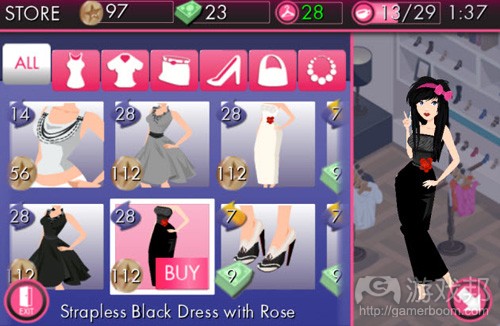
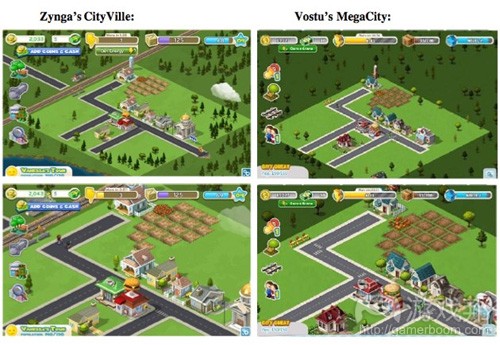
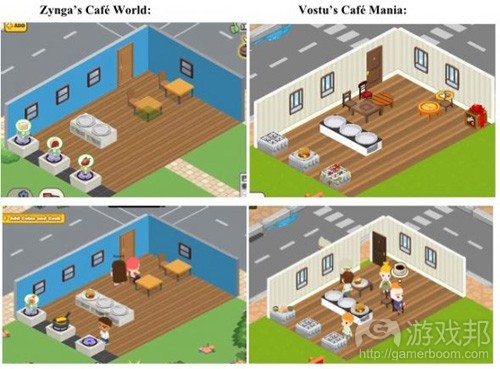

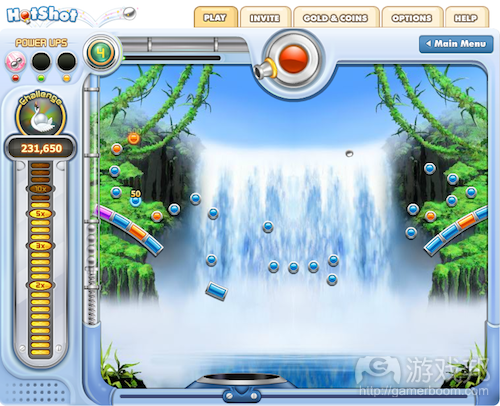

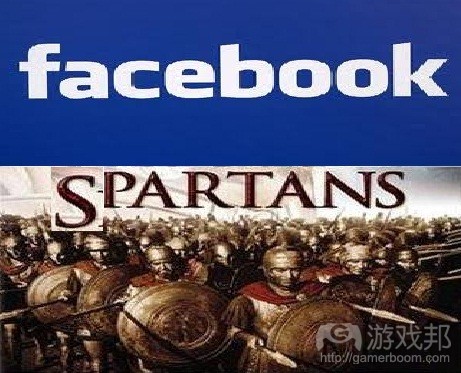














 闽公网安备35020302001549号
闽公网安备35020302001549号